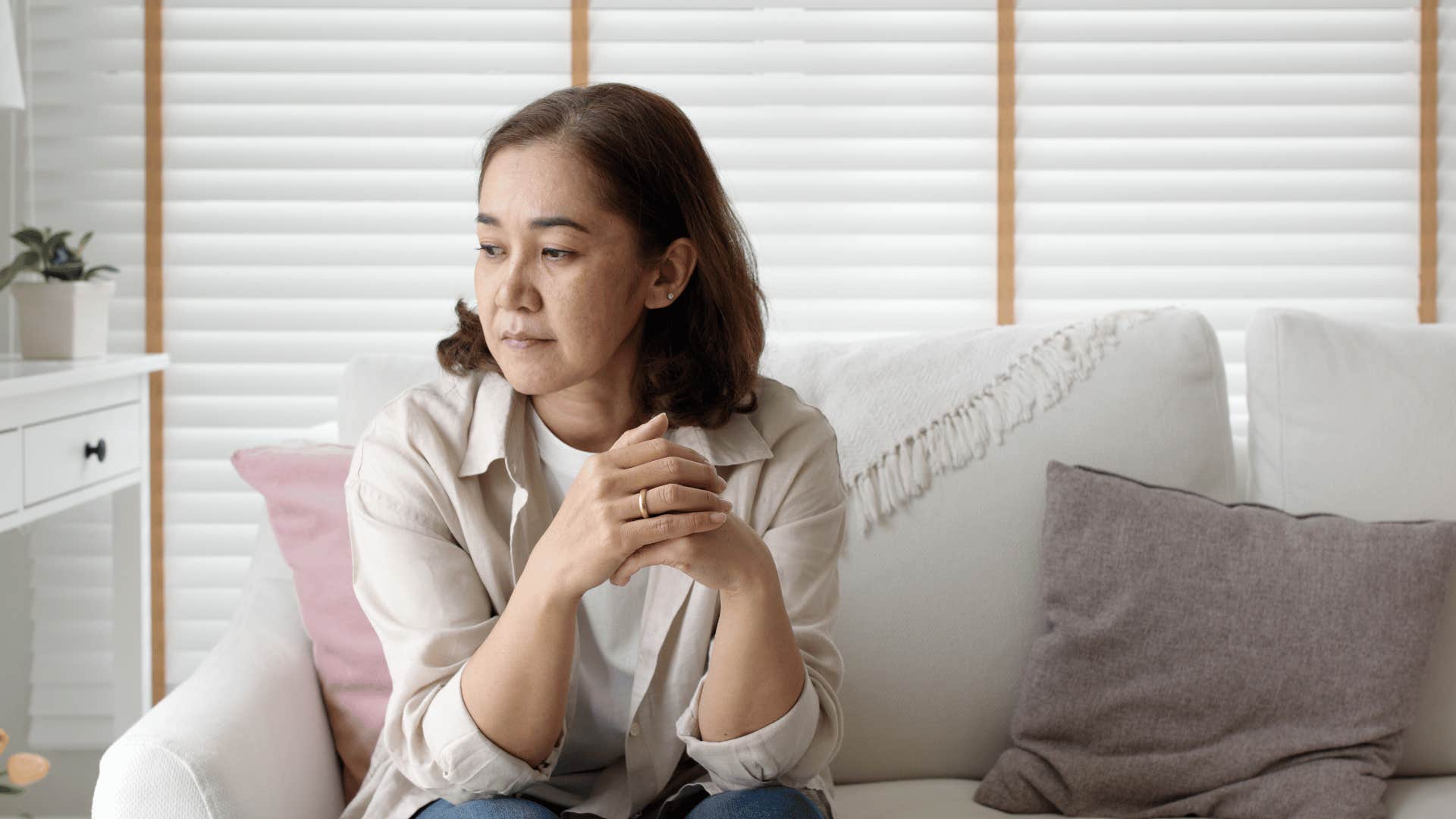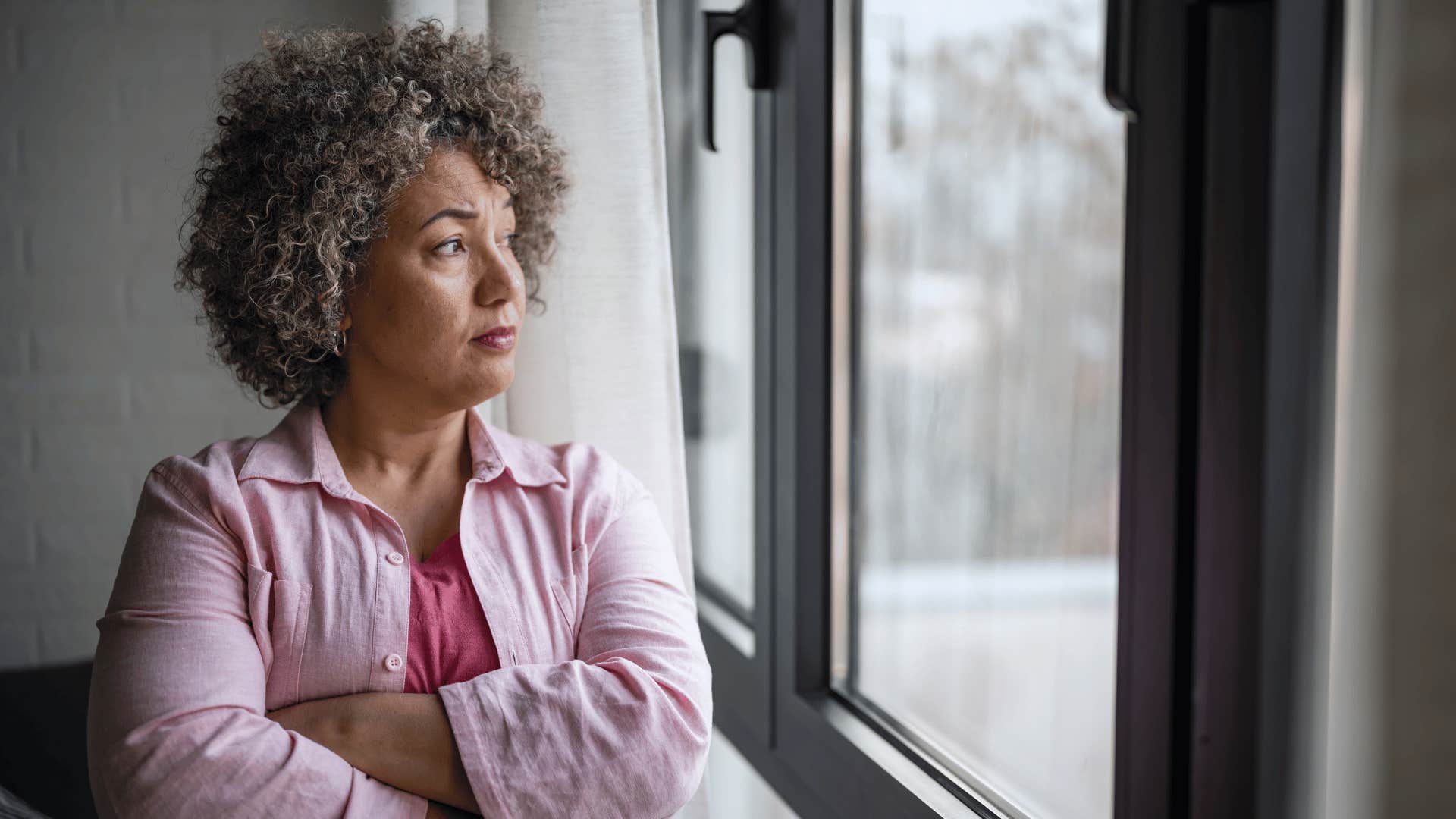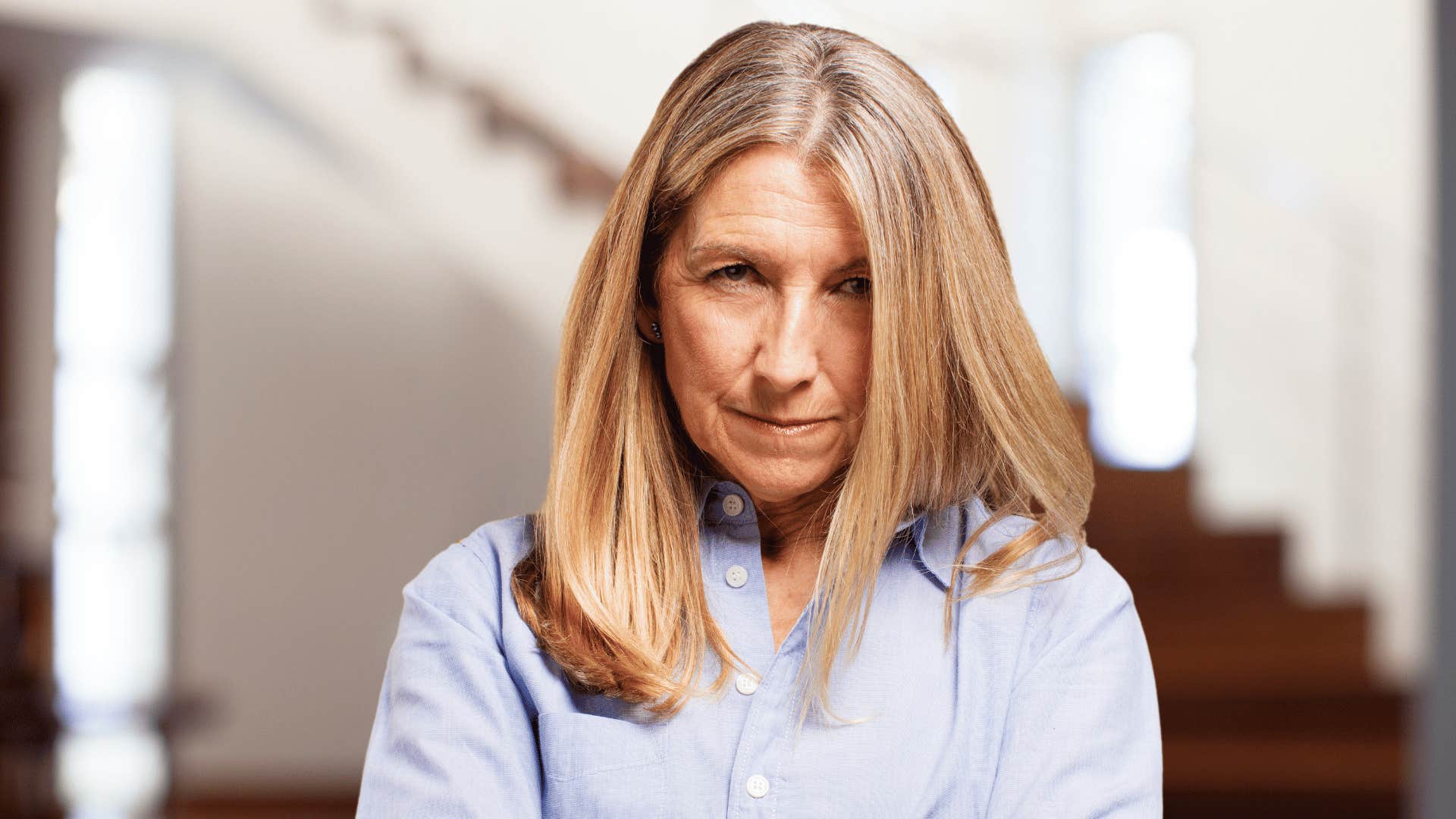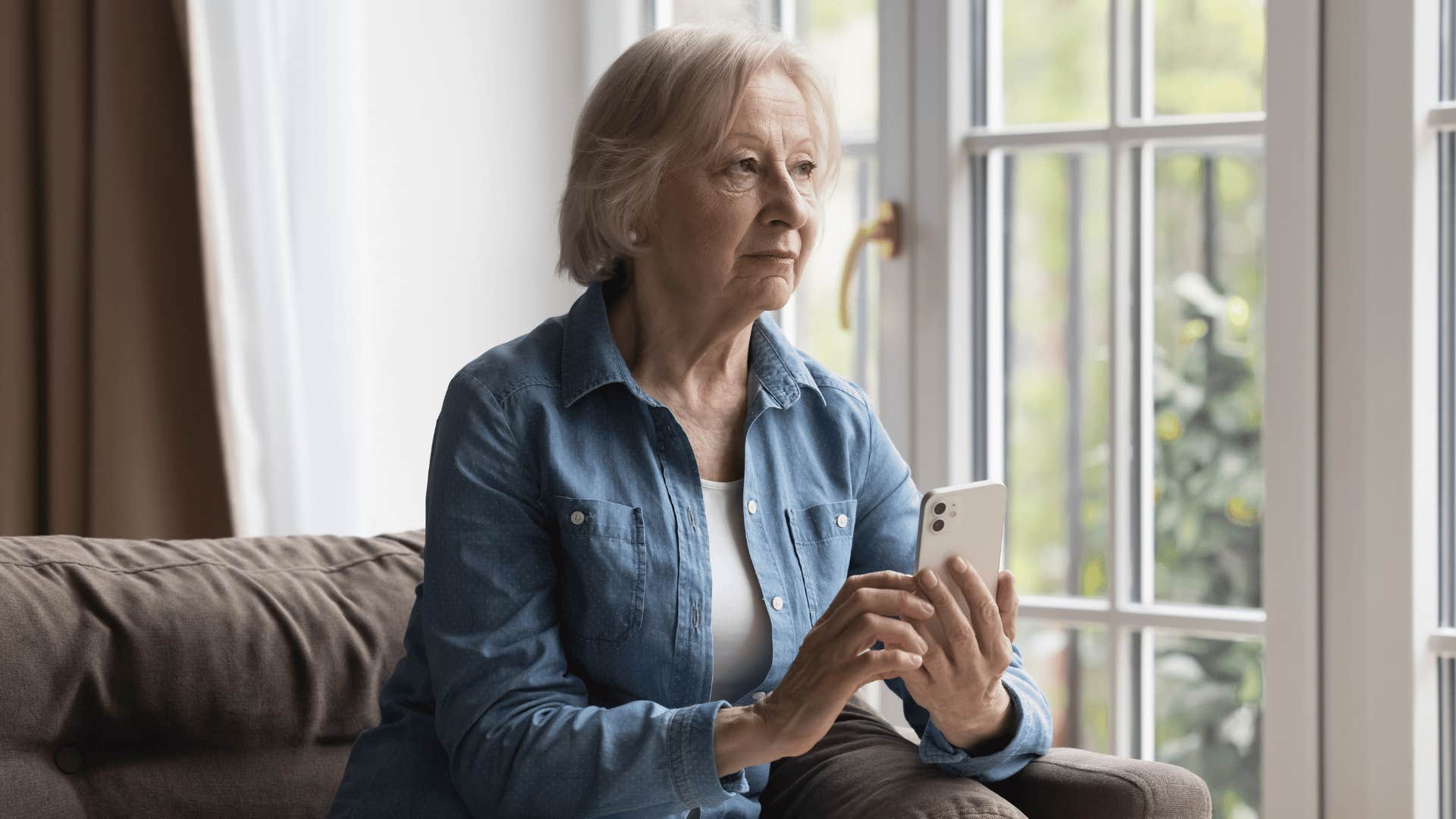11 Things Parents Don't Realize They Do That Make Their Adult Children Feel Unloved
Just because your children are grown, that doesn't mean they don't still need your full love and support.
 BearFotos / Shutterstock
BearFotos / Shutterstock Even when we act with our best intentions, it’s possible to cause harm. This can be especially true between parents and their adult children, as there are many things parents don’t realize they do that make their adult children feel unloved.
All of our relationships change with time, because we, as individuals, are always evolving. We might not notice the changes, especially when it comes to our connections with our families. We often see our families as static entities. Everyone has their place and acts according to the role they’ve been assigned.
The more awareness parents have about how their words and family patterns affect their children, even once those children are grownups, the healthier their relationships can become.
Here are 11 things parents don’t realize they do that make their adult children feel unloved
1. Avoiding difficult conversations
 fizkes | Shutterstock
fizkes | Shutterstock
One thing parents don’t realize they do that makes their adult children feel unloved is avoiding difficult conversations. They often gloss over the past, dismissing their children’s emotional reactions to wounds that are still unhealed. Parents might not want to hear that their adult children are struggling to come to terms with the way they were raised, but shutting down any discussion around those issues makes their adult children feel unloved.
If parents refuse to talk about conflict, past or present, they run the risk of their adult children distancing themselves. The first step to having hard conversations is to think about what you want to say and how you want to say it. This might sound overly simple, but we often start conversations without clearly defined ideas. We know that we feel hurt or angry, but we haven’t taken time to map out the reasons why.
When we do talk, it’s easy to cast blame and get stuck in our negative emotions, which can derail any conversation. Therapist Samara Fabrick says that “expressing positive feelings during a difficult conversation helps both of you feel better during and after the talk.”
“Infuse your conversation with caring, affection, and appreciation,” she advises. “Remember that the goal of communication is to be listened to and understood.”
Parents and their adult children might not come to the same conclusions or find a perfect solution after talking about hard things, but the act of opening up and sharing their vulnerabilities can bring them closer and remind them that they’re loved.
2. Not expressing pride
 fizkes | Shutterstock
fizkes | Shutterstock
Another thing parents don’t realize they do that makes their adult children feel unloved is neglecting to say they’re proud of them. Kids need to know that their parents take pride in them, not only for what they’ve accomplished, but just for being themselves. This need carries over from childhood into adulthood, which parents aren’t always aware of.
Feeling valued is the foundation for having healthy self-esteem, which is how people learn to take on challenges and feel confident in their ability to do hard things. A study from the Journal of Experimental Child Psychology looked at the ways parental praise and feedback impact children’s evaluation of themselves after failure. The study differentiated between two types of praise: Process praise, which emphasizes effort as the key to success, and person praise, which focuses on fixed traits as the reason someone succeeds.
Everyone, including children, have motivational beliefs about themselves. A growth mindset sees intelligence as a product of effort, while a fixed mindset maintains that intelligence is a trait that can’t be changed. The study’s findings showed that process praise, like a parent saying, “You worked so hard on that,” motivated kids to choose challenging tasks and persist through them. Receiving more process praise in early childhood is associated with having a stronger growth mindset, which sets kids up to be successful adults.
Parents might not realize that even in adulthood, their children benefit from hearing them express pride, or else they feel unloved.
3. Treating them like they’re still kids
 fizkes | Shutterstock
fizkes | Shutterstock
Parents don’t realize that treating their adult children like they’re still kids makes them feel unloved. It’s fairly common for parents to struggle with seeing their kids as independent people, even when they’re grown. They hold onto outdated definitions of who their adult children are, which limits their ability to acknowledge their autonomy.
Adult children want to be treated with respect. They want their parents to trust them to make their own decisions, even if those decisions lead them down a path their parents don’t agree with. Watching kids become adults means allowing them to make mistakes, which is essential to their personal growth. It might not be easy for parents to shift their perspective and treat their adult children as adults, but letting go is part of the process of letting them grow up.
4. Imposing their own life goals
 wavebreakmedia | Shutterstock
wavebreakmedia | Shutterstock
Something parents don’t realize they do that makes their adult children feel unloved is imposing their own life goals onto them. All parents have hopes for the types of people their children become, even if they don’t say it out loud. Some parents want their kids to make their own way in the world and do what makes them feel happy and fulfilled. Other parents put undue pressure on their kids to follow a predetermined path, which denies them agency and ultimately leads to resentment.
Parents who expect their kids to follow in their footsteps don’t give them a chance to discover who they are for themselves. They might push their child to go to medical school or be married with kids by the time they’re 30, but it ultimately doesn’t matter what parents want: Their kids’ lives are for them to decide.
All people want to live according to their own set of values and guiding principles. When parents set expectations that don’t match the values their adult children have, they make them feel unloved.
5. Defining them by old narratives
 Chay_Tee | Shutterstock
Chay_Tee | Shutterstock
Parents don’t realize that defining their adult children with narratives from their younger years makes them feel unloved. Bringing up things they did wrong in the past or putting them in a box that no longer fits the person they’ve become makes adult children feel like their parents don’t know who they really are.
Most adult children move beyond the habits and quirks they had as kids. They subsist off more than mac and cheese with hot dogs on the side. They’ve grown up to cook recipes from all around the world. They’re no longer the sullen teen who can’t stand classical music, now, they have season tickets to the orchestra. When parents continue to define their adult children according to past versions of themselves, they don’t give them room to change, which everyone deserves.
6. Not supporting their dreams
 Lordn | Shutterstock
Lordn | Shutterstock
Being unsupportive about their adult children’s dreams is something parents don’t realize they do that makes them feel unloved. Parents might not see the value in becoming a veterinarian instead of a lawyer, but they should give their adult children space to pursue the lives they want. Being discouraging or pointing out everything that’s wrong with what their kids want to do causes conflict and inevitable heartache.
Psychologist Dr. Sheryl Ziegler shared various personality traits that contribute to having an effective parenting style, noting that being supportive helps to “raise a child who knows they're loved, understands their place in the world and feels secure at any given time.”
“Supportive does not mean you allow your child to do anything they want,” she explains. “It means you validate their feelings, encourage them, and get creative when what they want is not something you can provide or think is best for them.”
“You can be supportive of their desires without compromising what you think is best. Listening, validating, and then creating a plan (or plan b) together is key to letting your child know you support them,” Dr. Ziegler concludes.
By the time kids reach adulthood, they have a strong sense of what they want and how to achieve it. If parents don’t support the dreams their adult children have, they make them feel unloved.
7. Judging their choices
 Kues | Shutterstock
Kues | Shutterstock
Something parents don’t realize they do that makes their adult children feel unloved is judging the choices they make. Being raised in a judgmental home can do major damage to someone’s sense of self-worth. Parents might not agree with their adult children’s career goals or the way they’re parenting their own kids, but voicing their criticism is unlikely to change the choices they’ve made.
Adult children tend to internalize what their critical parents say, which leads them to develop a harsh inner voice that echoes how their parents speak to them. Being self-critical is a destructive force that erodes relationships and wears people down, until they’re totally depleted.
As certified grief coach Pamela Aloia explains, “Criticism in general begets more criticism. If you are always looking at yourself for things that are wrong, you will tend to view your relationships and all life experiences through that same lens.”
8. Dismissing their mental health
 fizkes | Shutterstock
fizkes | Shutterstock
Dismissing their adult children's mental health is something parents don’t realize they do that makes them feel unloved. Speaking up about their struggles with anxiety, depression, or any other psychological issue they’re facing is a courageous act of self-care. When parents downplay what their adult children are going through, it makes them feel devalued, and unloved.
According to the National Alliance on Mental Illness, 1 in 5 adults in the U.S. experience some form of mental illness every year. 50% of all lifelong mental illness starts by age 14 and 75% starts by age 24. While it’s painful for parents to see their children suffer, ignoring their mental health challenges only serves to reinforce stigma and decrease the likelihood that they’ll get the treatment they need.
9. Being emotionally detached
 imtmphoto | Shutterstock
imtmphoto | Shutterstock
Being emotionally detached is a thing parents don’t realize they do that makes their adult children feel unloved. People need affection and emotional reassurance to feel secure, no matter how old they are. Parents who are unwilling or unable to connect on an emotional level with their adult children make them question if they’re loved, at all.
The psychological reasons for detachment include having low emotional intelligence, intergenerational trauma, an insecure attachment style, and poor mental health. Understanding the root causes of emotional detachment can make it easier to accept, although the lack of connection won’t hurt any less.
Adult children with emotionally detached parents often feel out of place or misunderstood. They’re unsure if they’re worth being loved. They’re plagued with self-doubt and the feeling that they’re not good enough. While they might never receive the emotional support they want from their parents, they can start their healing journey by recognizing that they’re absolutely enough, just by virtue of being themselves.
10. Demanding obligatory gratitude
 fizkes | Shutterstock
fizkes | Shutterstock
Something parents don’t realize they do that makes their adult children feel unloved is demand obligatory gratitude. The mindset that adult children owe their parents for raising them is damaging and cruel. While gratitude is an essential part of any relationship, it can’t be forcibly given. Expecting adult children to do so is a sign of being a transactional parent.
A study from the journal “Developmental Review” reported that being grateful leads to higher mental well-being, a more positive mindset, and greater life satisfaction. Parents who model gratitude have children with higher gratitude. The study found links between gratitude and secure parent-child attachment, noting that gratitude stems from supportive, warm parenting.
Gratitude isn’t necessarily given freely, but rather, something that’s earned, even between parents and their adult children.
11. Not showing up in moments of crisis
 fizkes | Shutterstock
fizkes | Shutterstock
Parents don’t realize that being unavailable when their adult children are in crisis makes them feel unloved. Everyone hits hard times at some point in their lives, and having the emotional and practical support of the people we love is often the way we make it through. When parents don’t show up for their adult children, it makes them feel abandoned and ultimately unloved.
Being present in moments of crisis doesn’t mean that parents have to drop everything to provide care for their children. They can provide support with small, accessible acts, like talking on the phone every morning, sending a meal, or listening while their child cries it out. Adult children need to feel their parents’ love, just as they did when they were young.
Alexandra Blogier, MFA, is a staff writer who covers psychology, social issues, relationships, self-help topics, and human interest stories.

